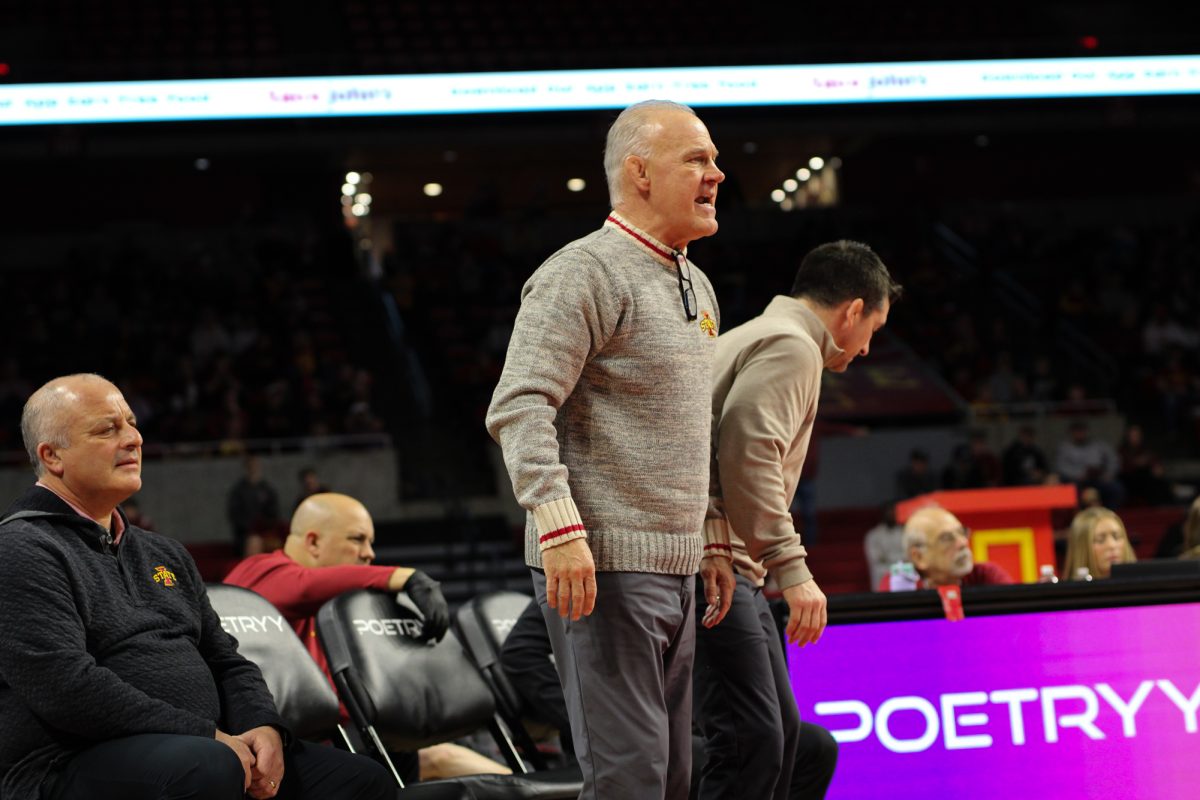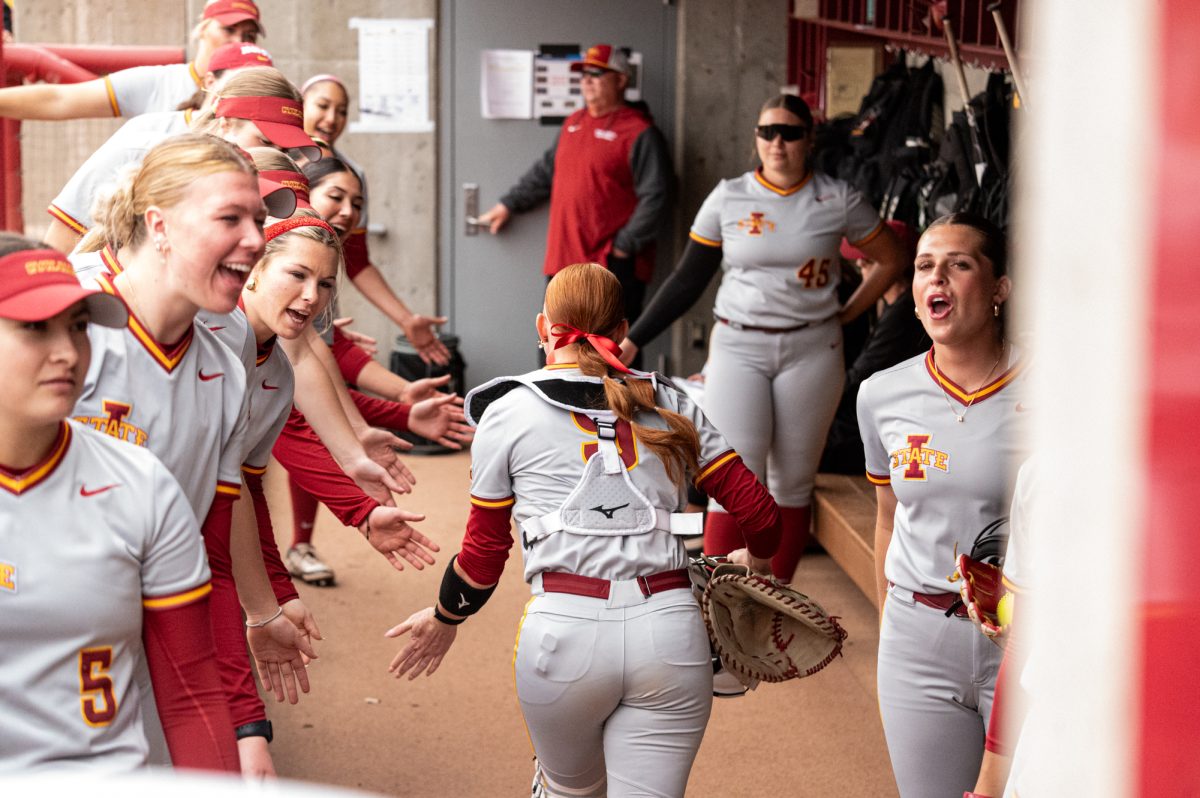Planning begins for ’06 Special Olympics
April 26, 2004
Jack Trice Stadium, filled to capacity, erupts with cheers as thousands of athletes from across the country crowd the field for the opening ceremonies of the National Special Olympics Summer Games.
This scene is what organizers would like to see July 4, 2006, when the first National Special Olympics comes to Ames and Iowa State, said Julie Weeks, executive director of the Ames Convention and Visitors Bureau and University Conference Services.
Weeks and Rich Fellingham, president and CEO of Special Olympics Iowa, put together a bid to host the National Games and submitted it to Special Olympics North America in February 2003. A year ago this month, a site selection committee from Special Olympics North America visited Ames. The Ames Convention and Visitors Bureau, Special Olympics Iowa and University Conference Services learned they received the bid at the end of May 2003, Weeks said.
“It was probably one of the quickest site selections and acceptances we’ve ever been through for an event of this magnitude,” Weeks said.
Fellingham said there were several reasons Ames was chosen as the site for the Games. These include the central location of Iowa, the excellent facilities Ames and Iowa State have to offer, the “good track record” Ames has with hosting the Iowa Special Olympics Summer Games and the excellent volunteer base Ames has to help with the Games.
“We have a community that is so caring, and we have an abundance of volunteers who enjoy working with these athletes,” said Ames Mayor Ted Tedesco.
Fellingham said organizers are expecting 5,000 athletes, 1,000 officials, 1,000 coaches and 10,000 to 15,000 spectators to congregate in Ames for the event. These totals don’t count volunteers and other spectators from the state, he said.
On average, the Iowa Special Olympics Summer Games uses around 1,600 to 1,800 volunteers. For the National Games, organizers will be looking for approximately 8,000 volunteers, Fellingham said.
The current budget for the National Games is $15 million, though organizers will only need to come up with $9 million, Fellingham said.
The budget plan includes both federal and state funding, corporate sponsorships and special event fund-raising, Fellingham said. Organizers went to Washington in February to speak with legislators about securing $5 million in federal funding for the games.
Weeks said promoting the games is an important role of the organizers. One goal is to draw enough spectators into Ames to fill Jack Trice Stadium for the opening ceremonies, she said.
“It will require us getting quality entertainment and putting together a show that can attract not only the athletes and their families but another 30,000 people from the Iowa area who want to attend and participate — it’s a little overwhelming,” Weeks said.
Organizers will be working with the Iowa State Center and Special Olympics North America to plan the entertainment for the ceremonies, Weeks said. She also noted there are plans for the ceremonies to be nationally televised if Special Olympics North America can sell the rights to the opening ceremonies.
Weeks said there are also many different ideas on how to promote the games. One idea is to have a program next summer that would hire interns from Iowa colleges to travel the state with Special Olympics athletes and make presentations to promote awareness of the Special Olympics at county fairs and town festivals. Another includes having 50 Iowa communities host one state delegation of Special Olympics athletes a couple of days before the games start.
“This way we can show [the athletes] what Iowa is all about,” Tedesco said. “We have to remember that these athletes are coming from all over the United States. Some of them have never seen a cow or experienced small-town life.”
Tedesco said he would like to see a TV show such as “Wheel of Fortune” come to the Iowa State Center during the week of the games. All the money raised on the show would be donated to the games. He said he’d also like for ISU students to participate by designing and making the dresses Vanna White would wear on stage and later auction them off, with the proceeds being donated to the games.
Weeks said all of the decisions surrounding these programs and other promotional activities will happen over the next year.
Planning out the logistics of large events, such as housing, dining and facility use are a collaborative effort with the city and university, Weeks said.
“We use full-time, permanent, professional staff, and that is a huge advantage for us,” she said.
Jody Larson, program coordinator for University Conference Services, said she will be working with departments on campus as well as facilities in Ames and the surrounding communities to create a welcoming and safe environment for the athletes and their families during the event.
Weeks said organizers also plan to have an “Olympic town” and an “Athletic Village.” The Olympic town will be in the Iowa State Center courtyard, and will offer space for sponsors, businesses and organizations to set up displays and presentations for the general public and the participants of the games.
The Athletic Village will be only open to Special Olympic athletes. The area will be filled with activities, demonstrations and entertainment for the athletes. Weeks said the site for this is yet to be determined, but it will be on campus in an area central to the housing.
She said she also expects there to be a considerable amount of economic impact to the Ames area from this event.
“Each day, there will probably be a couple million dollars in economic impact,” Weeks said.






